If You're Over 60 And Still Do These 11 Household Tasks, People Think You're Exceptionally Strong
These everyday chores become proof of your strength once you hit 60 and beyond.
 Halfpoint | Shutterstock
Halfpoint | Shutterstock Of course, there are several benefits — socially, emotionally, and physically — to cleaning your home regularly and decluttering your space, but getting older can sometimes bring unexpected obstacles that make these routines much more difficult. Doing household chores tends to promote a better quality of life and greater longevity in aging individuals, but if they face mobility challenges, mental health issues, or even financial constraints, accomplishing them can become much harder.
From cleaning the floors to taking care of the garage, if you’re over 60 and still do these household tasks, people think you’re exceptionally strong. Not just because of physical constraints and energy, but also because managing these tasks — often without adult children, family members, or a partner to help — can be overwhelming for a single person.
If you’re over 60 and still do these 11 household tasks, people think you’re exceptionally strong:
1. Deep cleaning floors
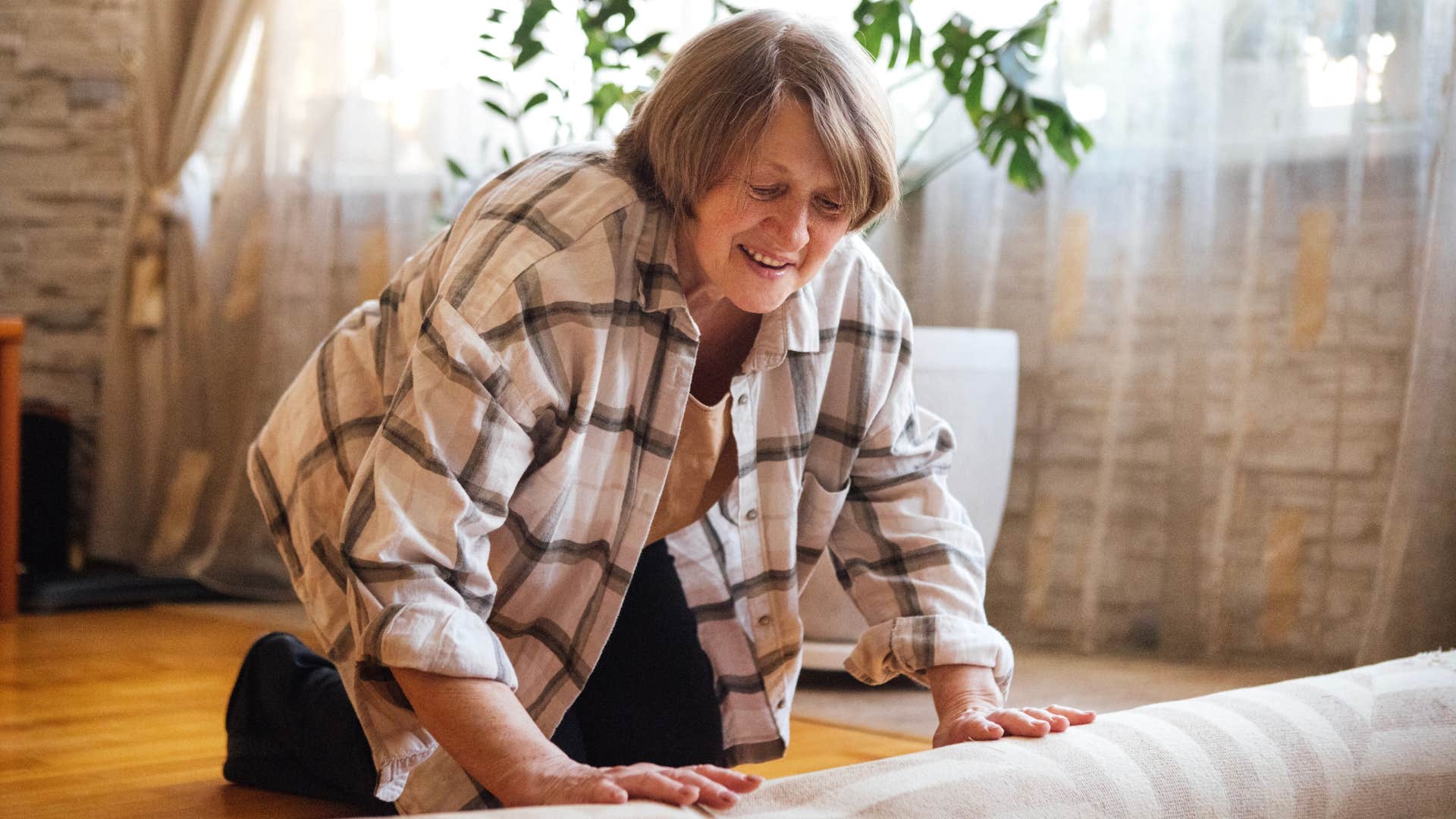 Dasha Petrenko | Shutterstock
Dasha Petrenko | Shutterstock
Many people cut corners when cleaning for convenience, with 72% admitting they skip certain areas because they are hard to reach or difficult to clean. However, for many people later in life, these areas become even more challenging to clean — often due to mobility issues — such as wiping down floorboards, dusting fans, or thoroughly cleaning the floors.
If you’re over 60 and still handling these household chores, people see you as exceptionally strong, especially compared to younger people and first-time homeowners who are still putting them off.
2. Bringing in groceries in one trip
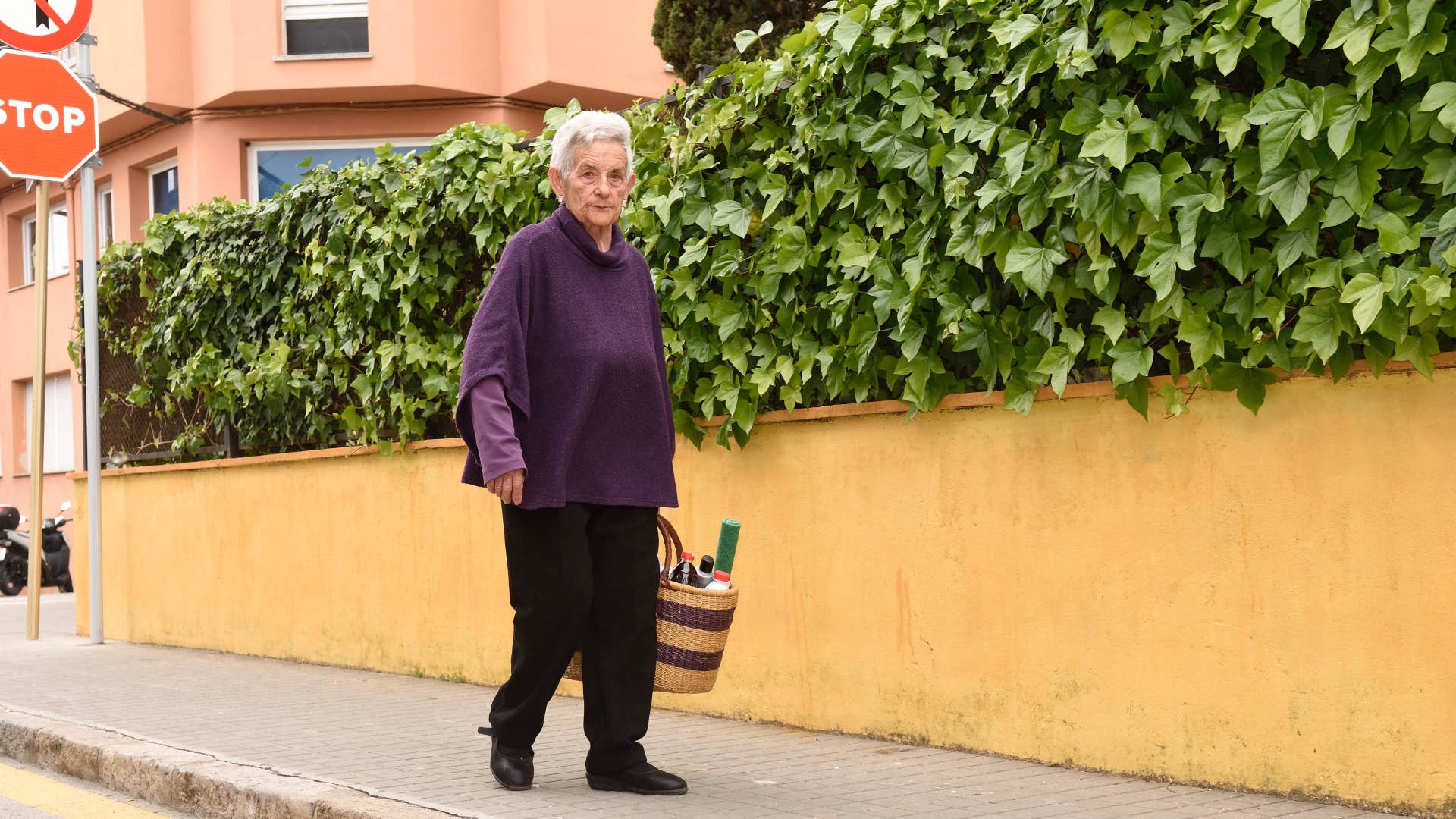 Josep Curto | Shutterstock
Josep Curto | Shutterstock
If you’ve ever lived alone, you know that bringing all your groceries inside in one trip without help is a feat in itself. Especially for older people, who often experience a decline in energy levels later in life that can negatively affect their mobility, even going to the grocery store can be exhausting.
So, if you’re doing all of that — coming home, making a single trip inside, and then putting it all away — people see you as exceptionally strong. Even though it might cause feelings of embarrassment or shame for those struggling with the aging process to think of a household task like this as an achievement, it truly is one, without a doubt.
3. Shoveling snow
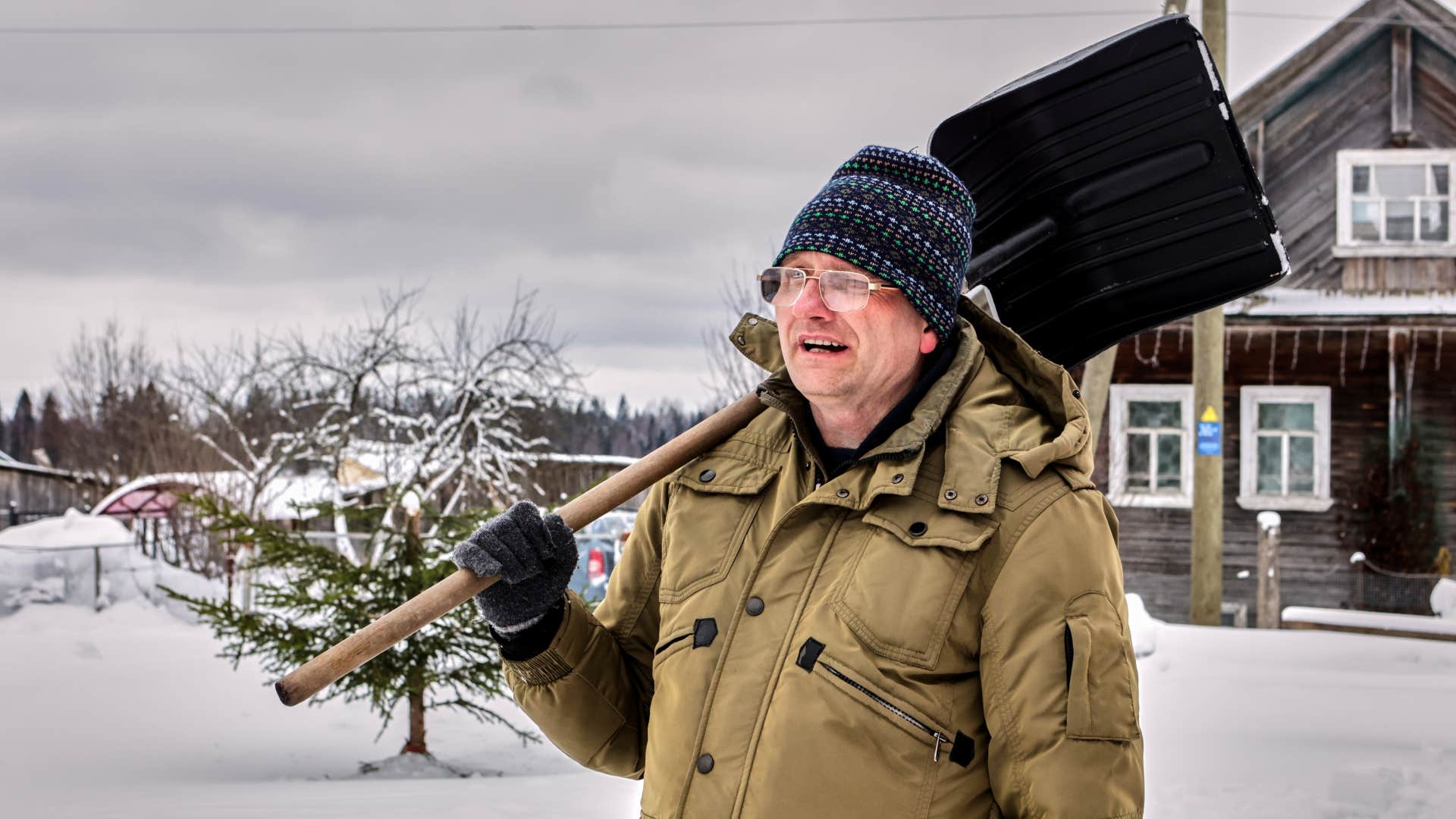 Grigvovan | Shutterstock
Grigvovan | Shutterstock
For many aging individuals, doing basic household chores around the house often exceeds their recommended physical-activity levels, according to a study from the Journal of Epidemiology and Community Health. Especially with seasonal tasks like shoveling snow, which adds mobility concerns, if you’re over 60 and still doing these household tasks, people often think you’re exceptionally strong.
While it varies for everyone, many people who retain mobility and good health as they age also follow healthy routines and habits in other parts of their lives — from eating nutritious foods to keeping a regular movement schedule for their bodies.
4. Doing yard work
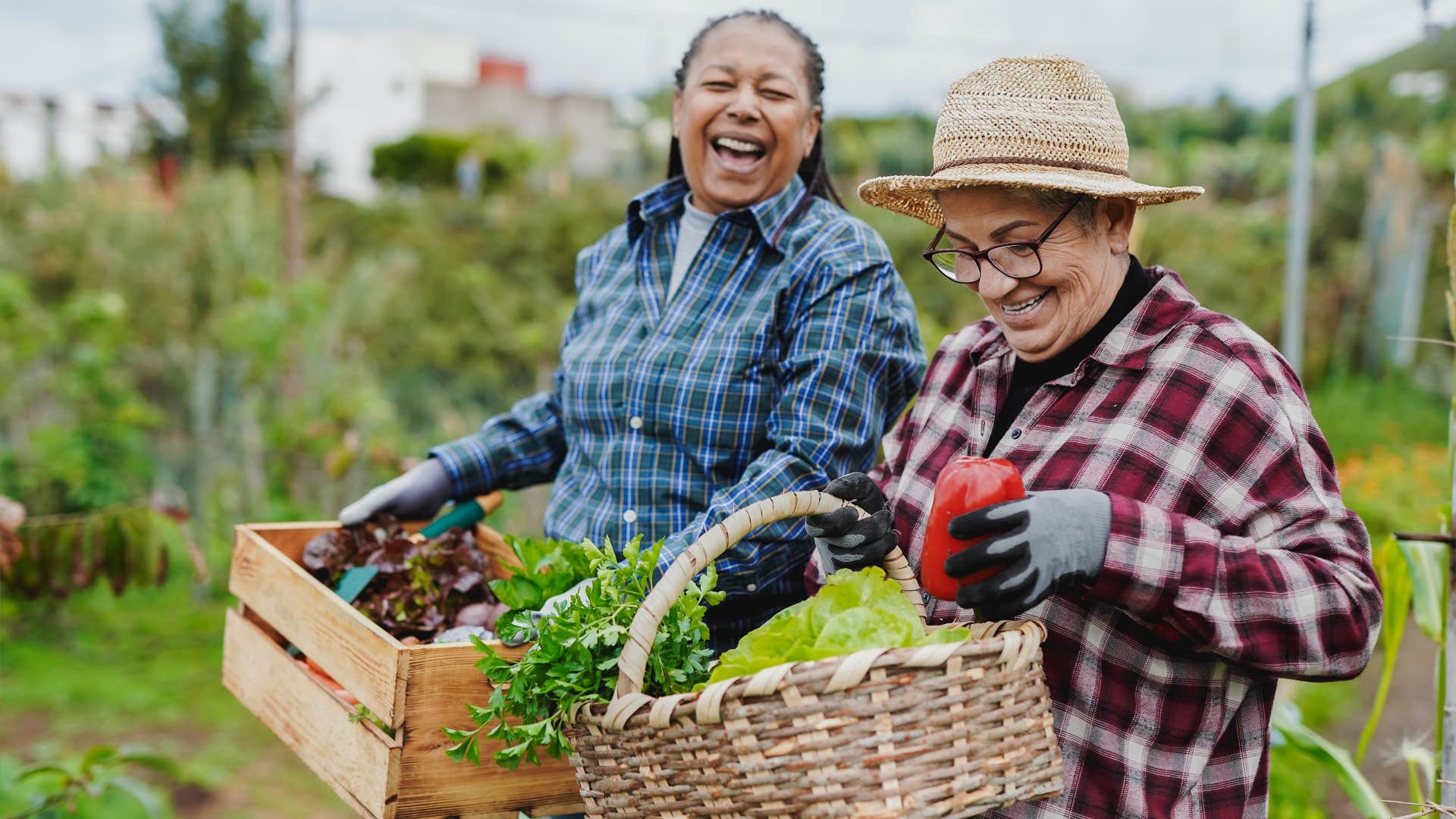 Sabrina Bracher | Shutterstock
Sabrina Bracher | Shutterstock
Doing yard work is one of the tasks people see as a sign of exceptional strength later in life, not only because it’s physically demanding but also because outdoor environments and movement are less predictable and stable. Even simple gardening tasks can be incredibly beneficial for wellbeing, as a study from the BMC Public Health journal suggests.
According to another study from the BMC Geriatrics journal, many people who regularly do household chores later in life not only experience greater physical health benefits but also see improvements in their brain health and cognition stabilization. For activities like yard work and shoveling snow — which require a certain level of mobility and strength — they also gain additional benefits such as exposure to natural light and outdoor movement.
5. Painting
 Halfpoint | Shutterstock
Halfpoint | Shutterstock
From memory to bodily mobility and grip strength, many of the factors that make household chores harder for older adults are interconnected. That’s why, if you’re still doing things like painting your home after turning 60, people see you as exceptionally strong.
It’s no surprise that our bodies and minds change as we age, making once easy and exciting tasks much more challenging. Not everyone has the privilege of maintaining these skills later in life due to limitations of time, money, or knowledge, but for those who do, their quality of life often deepens and improves.
6. Doing laundry for a huge household
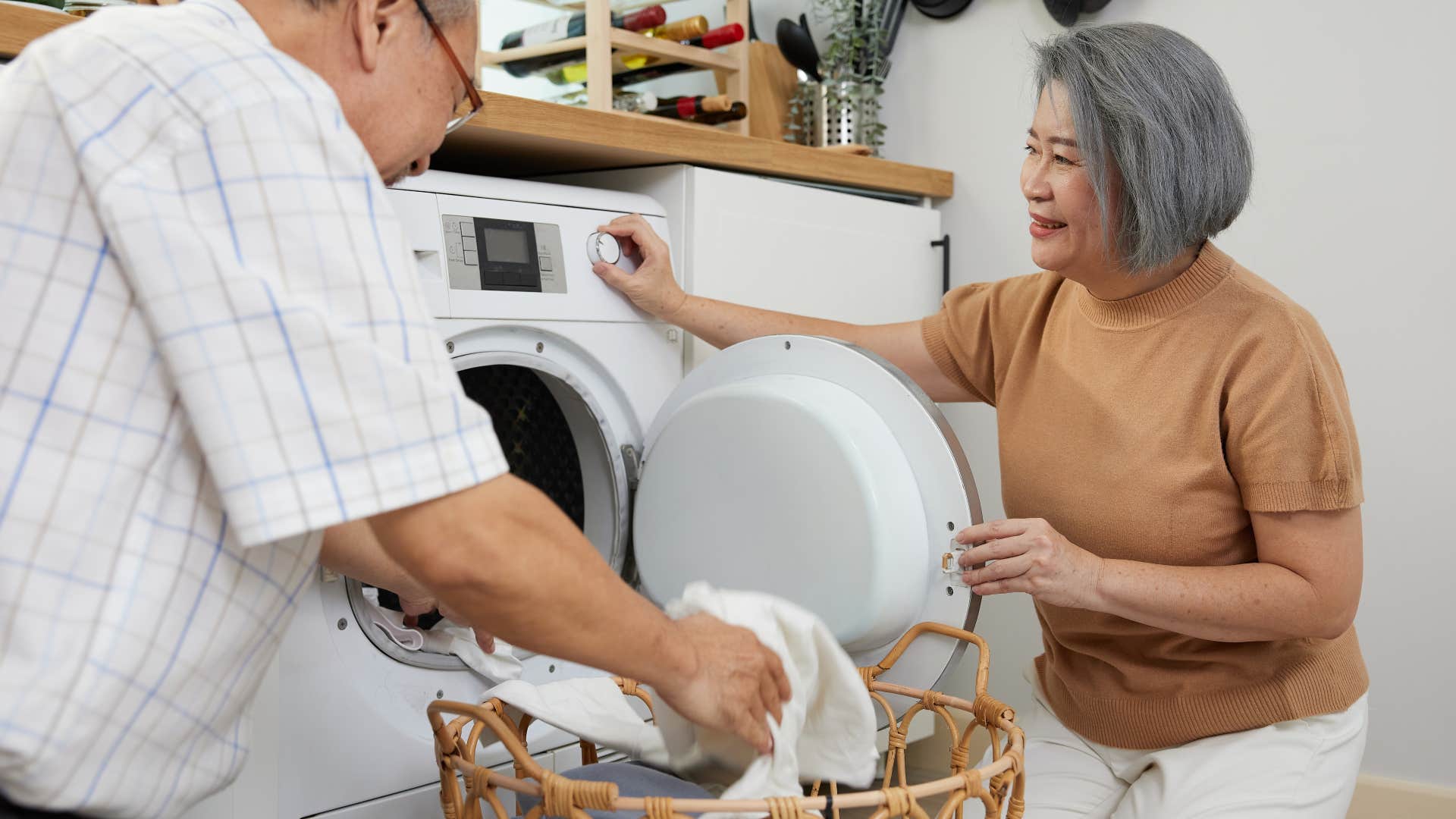 Mangkorn Danggura | Shutterstock
Mangkorn Danggura | Shutterstock
Especially in multi-level homes, doing laundry for multiple people can be a hassle — not just because it takes a lot of time, but also because it can be physically exhausting. Going up and down stairs, bending to unload the dryer, and carrying baskets of laundry — these household tasks can even tire out young people full of energy and strength.
However, if you’re over 60 and still handling these household tasks alone, people will likely see you as exceptionally strong. It’s not just physically demanding; it requires a level of preparation and planning that can sometimes be hard to keep track of and remember.
7. Walking the dog multiple times a day
 SB Arts Media | Shutterstock
SB Arts Media | Shutterstock
A study from Trinity College Dublin shows that regular dog walks can actually improve mobility for older adults. So, the more pet owners go outside and make walking a routine, the better their long-term physical health can become. However, that doesn't mean going out with a dog — especially if they’re large or untrained — isn’t a hassle for many aging adults.
It’s not only difficult to control them in uncertain situations, but also exhausting to turn it into a routine. If you’re over 60 and still handling these household tasks with pets, people see you as exceptionally strong.
8. Cleaning the gutters
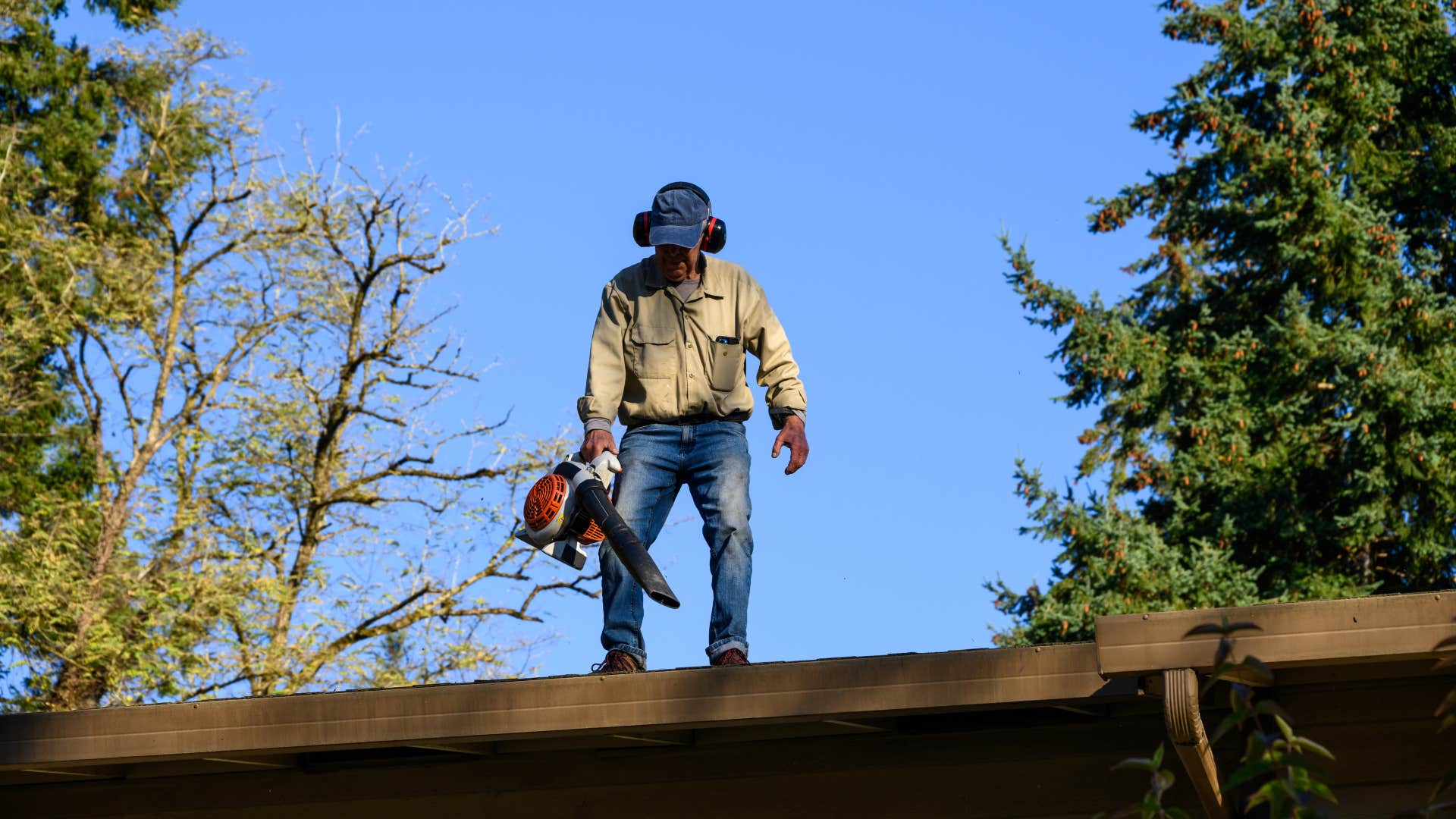 knelson20 | Shutterstock
knelson20 | Shutterstock
Cleaning the gutters is a very demanding task — there’s a reason why many people neglect it at home and delay doing it when the seasons change. For older adults, there are several safety concerns — from climbing a ladder and keeping balance to using mobility strengths.
That’s why most people feel pressured to hire someone or ask a family member to do the task — it’s hardly worth the effort to do it themselves. But if you’re still doing it without risking yourself and feeling confident on the ladder, people see you as exceptionally strong.
9. Changing car tires
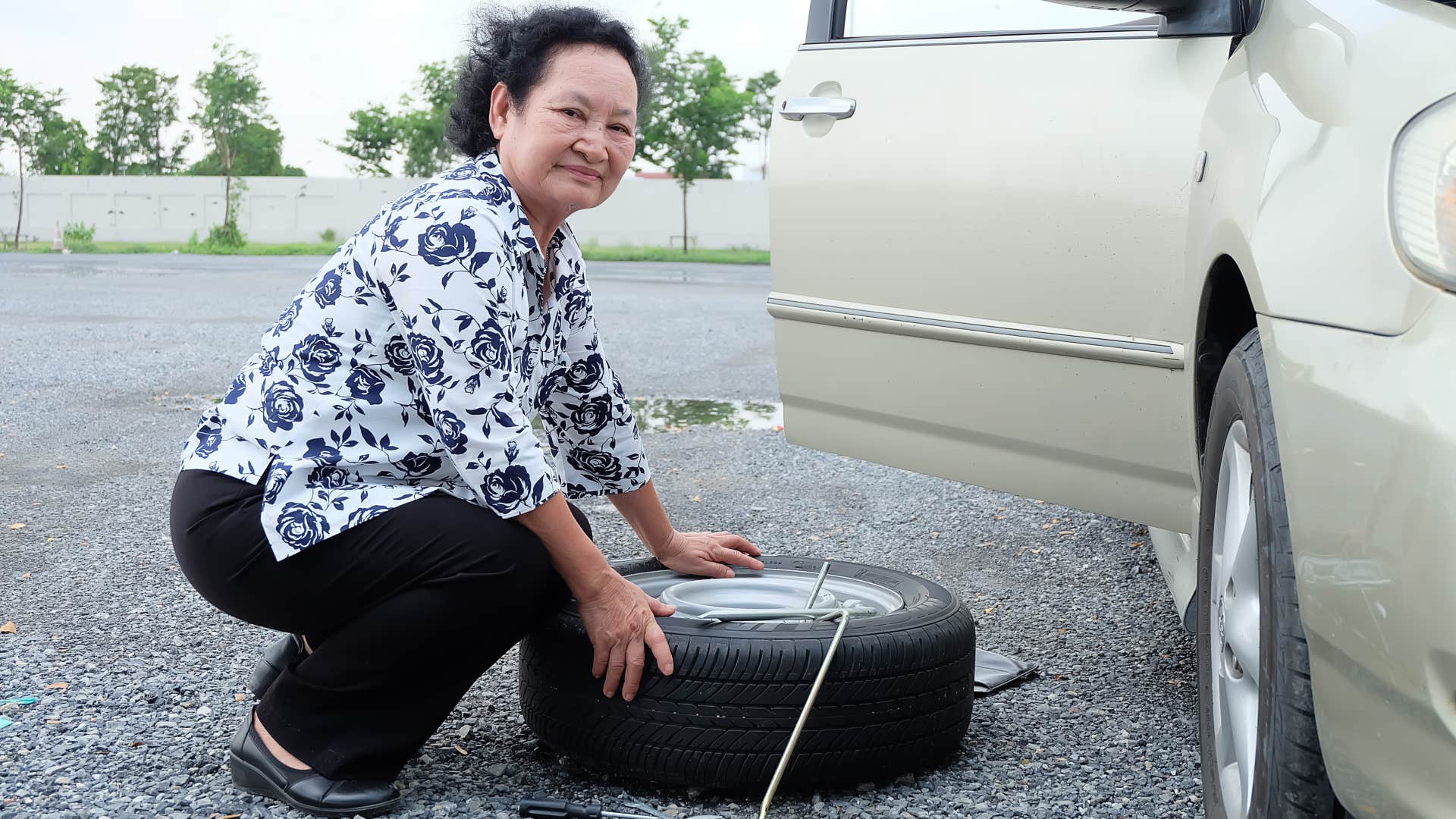 SrsPvl Witch | Shutterstock
SrsPvl Witch | Shutterstock
For many older adults in the automotive industry, grip strength is one of the first signs of declining productivity and health, according to a 2022 study. Many of these workers are forced to transition into less demanding roles or retire entirely, so if you’re still doing regular car maintenance at home, you’re exceptionally strong.
Even for less physically demanding tasks like changing a car’s oil or replacing the windshield wipers, these activities still require a level of mobility that many people often underestimate.
10. Cleaning the fireplace
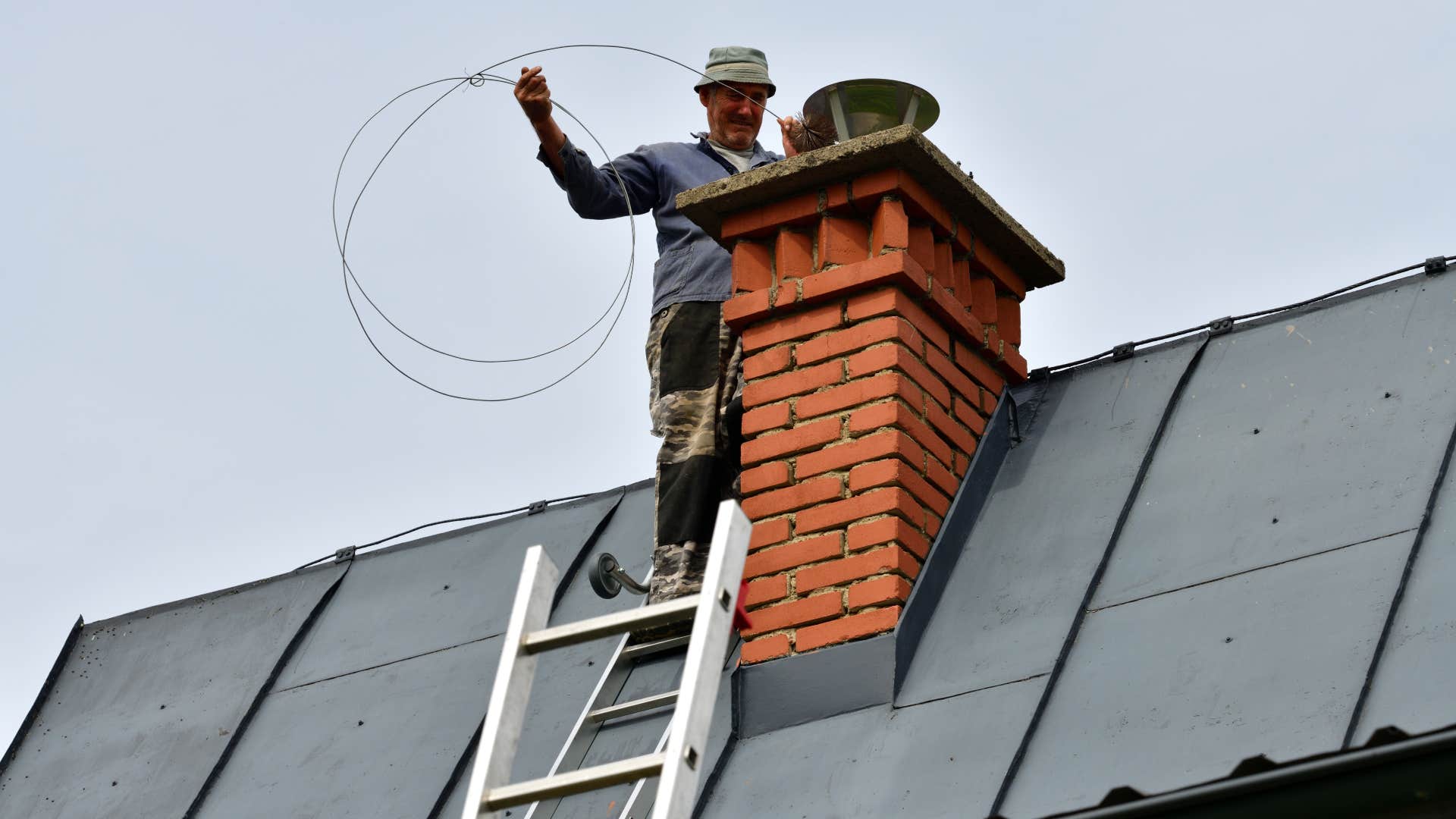 Klimek Pavol | Shutterstock
Klimek Pavol | Shutterstock
Fireplace and chimney cleaning is messy and strenuous, so if you’re still doing it past 60, people see you as exceptionally strong — even if most outsource it. Although there are several reasons why people shouldn’t clean their own chimneys and should instead hire professionals, it remains a challenging job for anyone, regardless of age.
If you’re over 60 and still doing these household chores, people think you’re remarkably strong, but that doesn’t mean you need to prove anything by risking your health and safety. Sometimes, choosing to outsource work and intentionally not doing certain tasks — even if you’re capable — is the more responsible and wise decision.
11. Fixing appliances
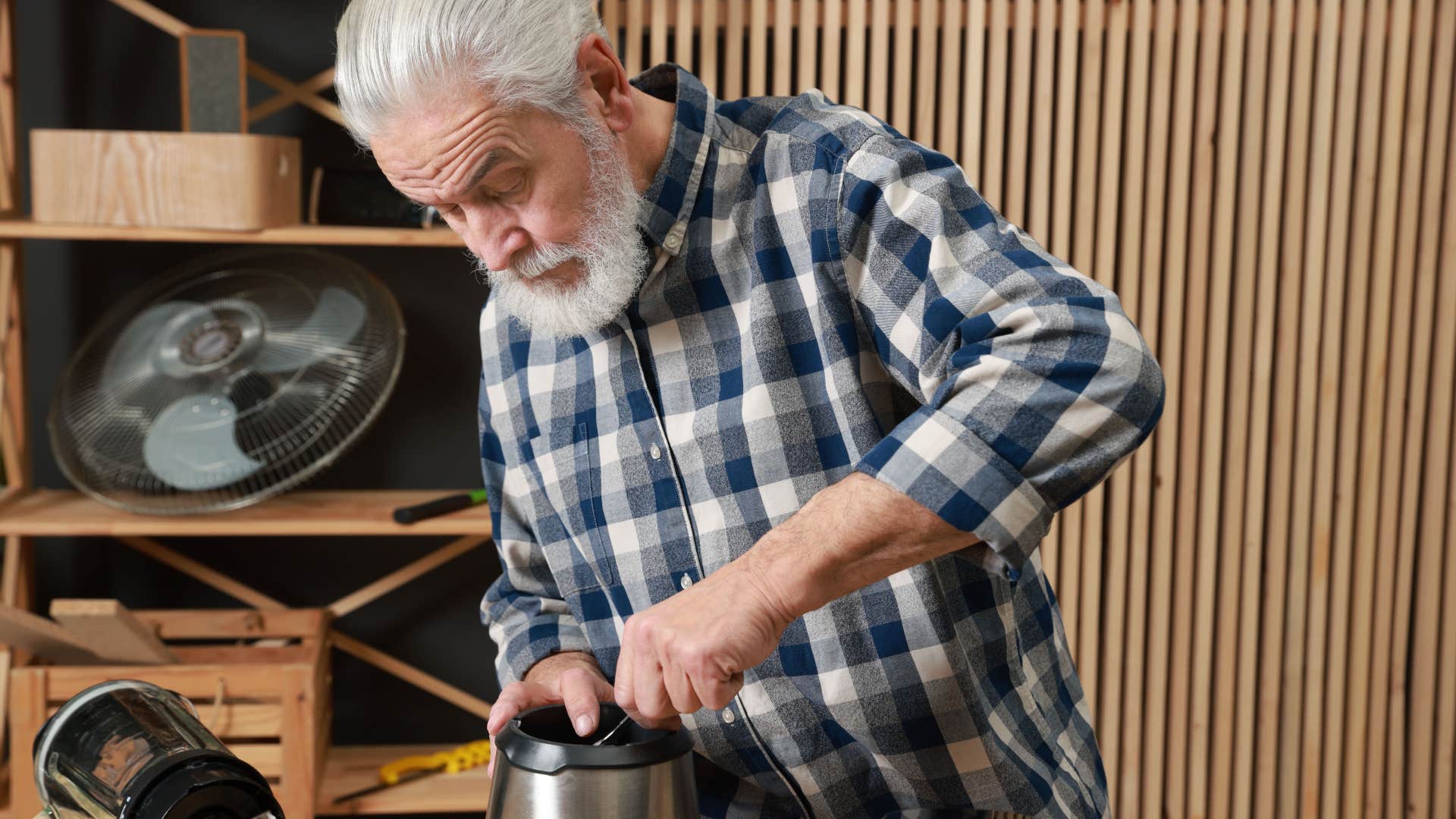 New Africa | Shutterstock
New Africa | Shutterstock
If you’re still doing your own household repairs — like fixing a fridge in the kitchen or reinventing broken furniture at home — people recognize that you’re exceptionally strong. It’s not only physically demanding in many of these situations, but it also requires a level of brain and cognitive skill to figure out how to fix things.
If you’re not hiring someone and you’ve never fixed something before, you’re spending time researching, learning new skills, and practicing—all of which are incredibly beneficial for personal health, strength, and wellbeing, especially for older individuals.
Zayda Slabbekoorn is a staff writer with a bachelor’s degree in social relations & policy and gender studies who focuses on psychology, relationships, self-help, and human interest stories.

